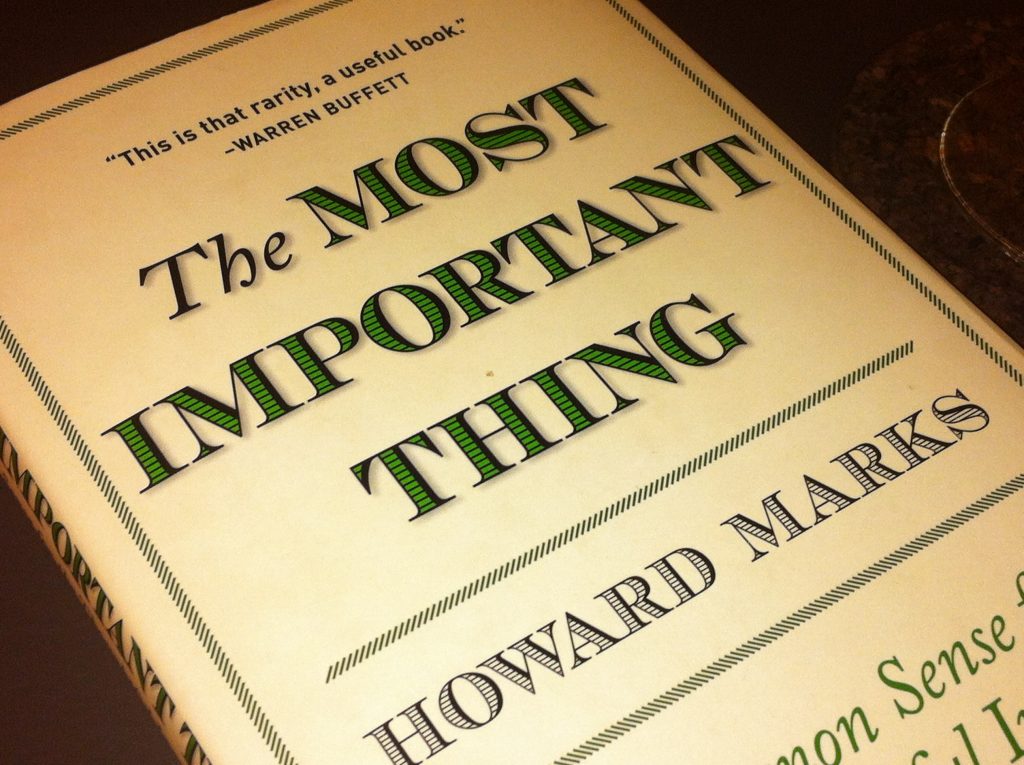Investment cycles are all different, but investor behaviour is nearly always the same.
By Richard Penny
Help I’m turning into a Marksist!
Not a follower of Karl or Groucho……. but Howard Marks
At CRUX we are constantly being asked if it would be possible to do work experience or if we have any advice for aspiring fund managers. It is not always possible to fulfil such requests, but after 30 years of investing experience I have a ready list of three books which I recommend, and which people at least pretend to be interested in!

One of these three is “The Most Important Thing: Uncommon Sense for the Thoughtful Investor” by Howard Marks. Although written in 2011 and referencing articles going back over fifteen years, the nature of the topic, investor psychology and behaviour, means the thoughts and observations continue to be spot on, particularly in times of extremely volatile markets, much like those we are seeing now.
Warren Buffett originally suggested that if Howard Marks were to write a book, he would happily write the introduction. I would recommend this book to “students of all ages.
The Most Important Thing is a well written and short book that is very good on the interplay between investor psychology (behavioural factors) and stock prices. Which ultimately I believe can be used to help inform and elevate us in investing. Within investment it can be difficult to buy when things are cheap and sell when great investments become too expensive, this book provides a framework in how to do this. Below are some of the main ideas and quotes from the book:
Finding good investments: Establishing a healthy relationship between fundamentals — value — and price is at the core of successful investing.[1]
How good is a business, and what is it worth are the two main questions we need to keep asking throughout any investment. A business might be good, but if the share price is already close to what the business is worth, is this a suitable investment. Prospective investor returns ARE a function of what you pay for an investment, with the relationship between price and value holding the ultimate key to investment success.
On Risk: “When everyone believes something risky, their unwillingness to buy usually reduces its price to the point where it’s not risky at all”[2]
Investment risk like investment return is a function of what you pay for an investment.
On Growth investing: “The choice isn’t really between value and growth, but between value today and value tomorrow. Growth investing represents a bet on company performance that may or may not materialize in the future, while value investing is based primarily on analysis of a company’s current wealth.”[3]
This stands to reason. Growth in revenues or profits are something that happens in a business. Value relates to what you pay for shares. It is possible to buy a Growth business at a value price sometimes, particularly in market sell offs.
On investment cycles: “The ultimately most profitable investment actions are by definition contrarian: you’re buying when everyone else is selling (and the price is thus low) or you’re selling when everyone else is buying (and price is high).” [4]
Investment cycles are all different, but investor behaviour is nearly always the same.
[1] “The Most Important Thing: Uncommon Sense for the Thoughtful Investor” by Howard Marks. Chapter 4, page 24
[2]“The Most Important Thing: Uncommon Sense for the Thoughtful Investor” by Howard Marks. Chapter 4, page 55
[3] “The Most Important Thing: Uncommon Sense for the Thoughtful Investor” by Howard Marks. Chapter 4, page 19-20
[4] “The Most Important Thing: Uncommon Sense for the Thoughtful Investor” by Howard Marks. Chapter 4, page 95